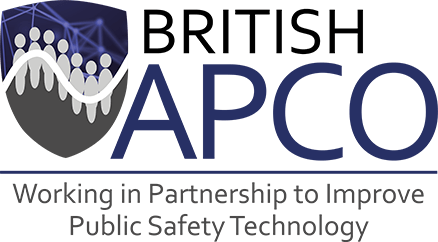CC:IPS Resources
Papers and guidance provided by CC:IPS members to be shared on the website on behalf of CC:IPS. The CC:IPS web address - www.cc_ips.org redirects to here.
112 Day Report 2023 European Emergency Number Association
14th Feb 2023
With the publication of this document on 112 Day 2023, EENA intends to step back and reflect on the overall progresses in several aspects of emergency communications handling in the European Union, in light with legislation and technology evolutions. The document was constructed based on qualitative data from publications of different reports by public institutions and EENA and some observations reported by the EENA staff. Unfortunately, the absence of harmonized definitions at EU-level and the inconsistent provision of data by public authorities make the quantitative data provided in these reports hardly comparable, which limited the scope of this document. This report addresses recommendations to different stakeholders on how to move forward on different topics in order to make the most out of the evolutions in information and communication technologies.
APCO Canada - List of useful COVID-19 Resources
22nd Dec 2022
This document provides a list of useful documents compiled by APCO Canada during the COVID-19 pandemic.
CC:IPS Campaign 1: Establishing & Promoting a Non-Emergency Number
22nd Dec 2022
Non-emergency numbers, dedicated to provide information to the public during a crisis, have proven extremely useful during the COVID-19 pandemic. Countries where such numbers were already in use and well recognized before COVID-19, have been successful in preventing congestion on emergency telephone lines such as 000/112/911/999.
CC:IPS Campaign 2: Recognition of Emergency Call Takers & Dispatchers
22nd Dec 2022
A shortage of PPE equipment across the globe impacted many communication centres from obtaining the correct safety equipment in the early stages of the COVID-19 outbreak. In some places this was compounded by the fact that Public Safety Communicators (PSCs) are not recognized as first responders or essential services in the job classification system, creating additional barriers to accessing PPE in a timely fashion or in the volume required.
CC:IPS Pledge - Use of Location Technology
22nd Dec 2022
CC:IPS members call on public authorities and emergency services globally to actively engage with Mobile Network Operators (MNOs) and smartphone Operating Systems providers in relation to the deployment of accurate handset-based caller location. Moreover, we call on smartphone Operating Systems providers to actively publicize the availability of handset-based location and to encourage public authorities and MNOs to make use of it. Lastly, we call on international organisations, such as the International Telecommunication Union (ITU), to raise awareness of the availability of handset-based location and to encourage its member countries to deploy such a life-saving feature.
CC:IPs Update: The Power of Video in Emergency Response
08th Nov 2023
Incident-Related Imagery (IRI) is defined as any form of visual information associated with an incident scene that is delivered via any medium to public safety personnel. With the evolution of Next Generation emergency number calling (NGX-X-X), the capability for IRI delivery to Public Safety Answering Points/Control Rooms (Emergency Communications Centre/ECC) increases as will the expectation of the public to interact with public safety services in this way. Video is the IRI medium we will be addressing in this document.
Cybersecurity Best Practices for Smart Cities
09th May 2023
Communities creating "smart cities" often do this to achieve quality-of-life improvements and cost-savings through the digital transformation of infrastructure. This best practice document is the result of a collaborative effort from the United States Cybersecurity and Infrastructure Security Agency (CISA), the United States National Security Agency (NSA), the United States Federal Bureau of Investigation (FBI), the United Kingdom National Cyber Security Centre (NCSC-UK), the Australian Cyber Security Centre (ACSC), the Canadian Centre for Cyber Security (CCCS), and the New Zealand National Cyber Security Centre (NCSC-NZ).
Next Generation Public Emergency Call Services - Cybersecurity Best Practice
31st May 2024
In looking at the transition to Next Generation 911 in the United States, the Cybersecurity & Infrastructure Security Agency – CISA – presents this compilation of documents to CC:IPS. Together, it offers a variety of resources and guidance on cybersecurity for the 911 community and public safety at large. Representative of best practices from July of 2023, this collection includes a sample of resources put together by CISA and its partners through SAFECOM and the National Council of Statewide Interoperability Coordinators (NCSWIC)—the outcomes of efforts to tackle some of the nation’s most challenging issues on cybersecurity from an Emergency Communications Center perspective.
Public Safety Mission Critical Communications - Is this Critical Infrastructure ?
13th Aug 2024
This paper highlights how emergency communications are dealt with in terms of critical infrastructure across the many jurisdictions that the CC:IPS membership spans. It is our goal to provide Public Safety practitioners worldwide with information to understand the critical nature and role of emergency communications, including 3-digit emergency call systems such as 000/112/911/999, within their own national Critical Infrastructure (CI) framework. A document that shares various countries' positions is an important first step in enabling others to benchmark their own stance and the implications.
Traffic Light Protocol 2.0 User Guide
14th Feb 2023
From the US Cybersecurity and Infrastructure Security Agency: Traffic Light Protocol (TLP) is a system of markings that designates the extent to which recipients may share potentially sensitive information. Though the protocol has been in use for nearly two decades by the incident coordination and response community, the Forum of Incident Response and Security Teams (FIRST) formally published TLP 1.0 in August 2016; this version, TLP 2.0, was published in August 2022.
Search Resources
Use the form below to search the resources library



